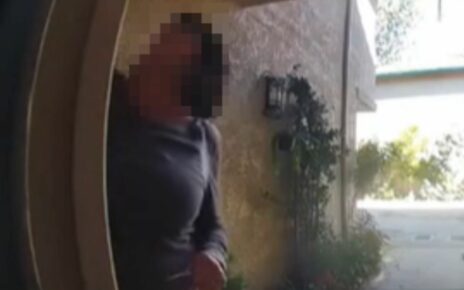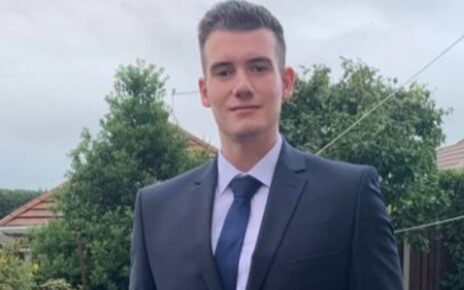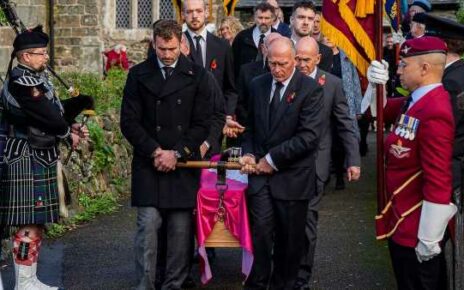Save articles for later
Add articles to your saved list and come back to them any time.
Fifteen years ago, Australia endorsed an important agreement: the UN declaration on the rights of Indigenous peoples.
That declaration asserted the rights of those people around the world to maintain and strengthen their own institutions, cultures and traditions. It supported their self-determination and effective participation in decision-making relevant to them.
By endorsing that declaration 15 years ago Australia sent a message to the world’s Indigenous peoples that it cared about their rights and their future.
The proposed Indigenous Voice to parliament aligns with the principles and aspirations of that declaration.
What is it then, about the Voice proposal that has close to half of the country’s voters and a majority of Victorians – according to the latest polls – ready to turn away from the principles of this agreement our country committed to on the global stage?
Only 56 years ago, First Peoples were recognised as part of the Australian population with an overwhelming Yes vote at the 1967 referendum. At that ballot, more than 90 per cent of about 6 million votes were ticked by Australians who wanted to say they cared about the lives of Indigenous people. That they mattered. They didn’t know what would happen next, they didn’t have all the detail, but they said Yes.
Civil rights activist Faith Bandler (right) on her way to vote in the 1967 referendum.Credit: George Lipman
Historically and in modern Australia, Aboriginal and Torres Strait Islander people have endured dispossession, discrimination, marginalisation, and human rights violations. Australia has failed First Nations people on cultural heritage protection, land rights, health disparity and child removal. It has targeted them with its criminal justice and child protection systems.
These are facts. They are accepted and acknowledged even by the powerful institutions that superintend the lives and communities of First Nations people in Australia.
The Age’s readers have heard this acknowledged over the past two years in our coverage of Victoria’s Yoorrook Justice Commission – the first truth and justice commission in Australia. They are hard and uncomfortable truths, but truths that make it clear that the corrosive effects of the colonisation of First Peoples’ homelands persists.
There have been more than 550 Aboriginal deaths in custody across Australia since 1991, according to government data. Child removals are occurring at higher rates now than even among past stolen generations, with Indigenous kids 10 times more likely to be in out-of-home care than non-Indigenous kids. Almost a quarter (24 per cent) of deaths among Indigenous Australians aged under 24 are due to suicide, according to last year’s Closing the Gap report. Life expectancy is approximately 10 years lower than for non-Indigenous Australians. Almost half of all Indigenous people have at least one chronic disease. There are disparities across the social determinants of good health, such as education, housing, employment and income.
Chair of Victoria’s Yoorrook Justice Commission Eleanor Bourke.Credit: Joe Armao
A Voice will allow First Peoples to chart their own, improved course to correct this abysmal situation. It will help them address these lasting, real-world, daily effects of colonisation.
The Age first stated its support for the Indigenous Voice in 2019, two years after Indigenous leaders called for the Voice in the Uluru Statement from the Heart, saying it was a mechanism that belonged in Australia’s Constitution. It was a position stated before a senior advisory group, commissioned by the former Coalition government, tabled a final report to the then-minister for Indigenous Australians, Ken Wyatt, that provided detail about the proposed structure for the Voice and how it likely will work.
The Age urged then-prime minister Scott Morrison to use his voice to lead the change required to deliver an enshrined Indigenous Voice: “It is historical inequality that makes a Voice to parliament written into the Constitution so important for our future. This would protect the Voice from the whims of an adversarial government. And acknowledging Indigenous Australians’ unique place in our society with a Voice protected by our most fundamental document of principles is crucial to reconciliation.”
Before Saturday’s referendum ballot, The Age restates that position and urges Victorians and Australians to vote Yes.
A recreation of an Age image from a 1988 article that included the voices of Indigenous leaders.Credit: Matt Davidson
In 1967, The Age led the way in its campaigning for a Yes vote to count Aboriginal and Torres Strait Islander people as part of Australia’s population and to enable the Commonwealth to make laws for them.
“Voting Yes to these proposals is a simple matter of humanity. It is also a test of our standing in the world,” the newspaper’s editorial, published four days before the historic ballot, read.
That statement remains true of the 2023 referendum.
Unlike the 1967 referendum, however, the Indigenous Voice to parliament has not enjoyed cross-party endorsement. Opposition Leader Peter Dutton scuppered those hopes when he announced in April that he would actively campaign against the Voice.
In ’67, The Age reported that the debate over the “Aboriginal issue” was “almost ignored” by the government and opposition.
In 2023, the Voice campaign became a “convincing ground” in a battle for hearts and minds waged mainly, but not exclusively, between the major parties. This persistent political partisanship between duelling politicians kept the Voice firmly mired in Canberra when it desperately needed to become a community-led people’s movement.
As the intensity of a No campaign that included many falsehoods and misrepresentations ramped up, the political nature of the contest left the broader public apathetic. Preoccupied with the more immediate concerns in their lives – such as the soaring costs of living – the public’s early enthusiasm for a Yes vote slid.
A disinformation campaign – imported from the US – advanced truth decay here. An upsurge in racist hate and abuse online was the result. This hostile atmosphere intensified feelings of fear and despair among Indigenous people, particularly youth.
Until recently, the toll on the mental health and wellbeing of First Nations people from the No campaign’s Trumpian efforts to derail the Voice has generally been underappreciated. Indigenous people have been left asking why that is, particularly when the abusive social environment in the lead-up to the same-sex marriage plebiscite in 2017 gave rise to wider public empathy.
The Age has spoken to Indigenous people across this state, and indeed the country, during the Voice campaign. Our Indigenous affairs reporter, Birpai man Jack Latimore, consulted widely in cities and on Country. The information he has gathered and his own expert view has guided this masthead’s position. A majority of Aboriginal people will vote Yes to the Voice, understanding that it is not an endpoint but a step towards enabling First Nations people to participate more fully in Australian society.
A vote of No would be an active choice to perpetuate the exclusion of these communities. Passively maintaining the status quo is unacceptable, but choosing to stifle Indigenous advancement is unforgivable.
Those intending to vote No should consider how they would explain their decision to an Aboriginal child years from now.
The Voice provides an opportunity to work towards equality and the meaningful inclusion of Aboriginal and Torres Strait islander communities in decisions that will craft their future.
It would not solve all problems, but it would be a starting point to achieving the principles this country endorsed in that UN declaration 15 years ago.
Patrick Elligett sends an exclusive newsletter to subscribers each week. Sign up to receive his Note from the Editor.
Most Viewed in National
From our partners
Source: Read Full Article





